Madeleine Leininger is a nursing theorist who developed the Transcultural Nursing Theory or Culture Care Nursing Theory. Get to know Madeleine Leininger’s biography, theory application, and major concepts in this nursing theory study guide.
Biography of Madeleine Leininger
Madeleine Leininger (July 13, 1925 – August 10, 2012) was an internationally known educator, author, theorist, administrator, researcher, consultant, public speaker, and the developer of the concept of transcultural nursing that has a great impact on how to deal with patients of different culture and cultural background.
She is a Certified Transcultural Nurse, a Fellow of the Royal College of Nursing in Australia, and a Fellow of the American Academy of Nursing. Her theory is now a nursing discipline that is an integral part of how nurses practice in the healthcare field today.
Early Life
Madeleine Leininger was born on July 13, 1925, in Sutton, Nebraska. She lived on a farm with her four brothers and sisters and graduated from Sutton High School. After graduation from Sutton High, she was in the U.S. Army Nursing Corps while pursuing a basic nursing program. Her aunt, who had congenital heart disease, led her to pursue a career in nursing.
Education
In 1945, Madeleine Leininger, together with her sister, entered the Cadet Nurse Corps, a federally-funded program to increase the number of nurses trained to meet anticipated needs during World War II.
She earned a nursing diploma from St. Anthony’s Hospital School of Nursing, followed by undergraduate degrees at Mount St. Scholastica College and Creighton University.
Leininger opened a psychiatric nursing service and educational program at Creighton University in Omaha, Nebraska. She earned the equivalent of a BSN through her studies in biological sciences, nursing administration, teaching, and curriculum during 1951-1954.
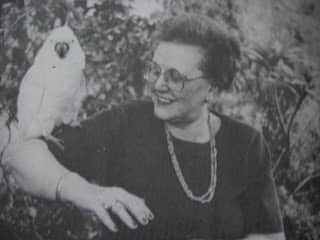
She received a Master of Science in Nursing from the Catholic University of America in 1954.
And in 1965, Leininger embarked upon a doctoral program in Cultural and Social Anthropology at the University of Washington in Seattle and became the first professional nurse to earn a Ph.D. in anthropology.
Career and Appointments of Madeleine Leininger
While working in a child guidance home during the 1950s, Madeleine Leininger experienced what she described as a cultural shock when she realized that children’s recurrent behavioral patterns appeared to have a cultural basis. She identified a lack of cultural and care knowledge as the missing link to nursing.
In 1954, she moved on to serve as Associate Professor of Nursing and Director of the Graduate Program in Psychiatric Nursing at the University of Cincinnati. She also studied in this university, pursuing further graduate studies in curriculum, social sciences, and nursing.
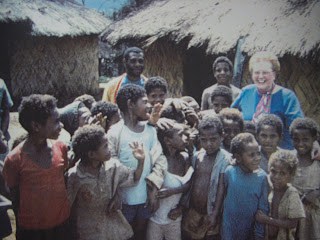
She was the first in the 1960s to coin the concept of “culturally congruent care,” which was the goal of the Theory of Culture Care, and today the concept is being used globally.
Leininger was appointed Professor of Nursing and Anthropology at the University of Colorado — the first joint appointment of a nursing professor and a second discipline in the United States.
As for being a pioneer nurse anthropologist, Leininger was appointed Dean of the University of Washington, School of Nursing in 1969 and remained in that position until 1974. In 1973, under her leadership, the University of Washington was recognized as the outstanding public institutional school of nursing in the United States.
Her appointment followed a trip to New Guinea in the 1960s that opened her eyes to the need for nurses to understand their patients’ culture and background to provide care. She is considered by some to be the “Margaret Mead of nursing” and is recognized worldwide as the founder of transcultural nursing, a program that she created at the School in 1974.
From 1974 to 1980, Leininger served as Dean, Professor of Nursing, Adjunct Professor of Anthropology, and Director of the Center for Nursing Research and the Doctoral and Transcultural Nursing Programs at the University of Utah College Nursing.
She was the first full-time President of the American Association of Colleges of Nursing and one of the first members of the American Academy of Nursing in 1975.
Leininger’s professional career is recognized as an educator and academic administrator from 1956 to 1995, a writer from 1961 to 1995, a lecturer from 1965 to 1995, a consultant from 1971 to 1992, and a leader in the field of transcultural nursing from 1966 to 1995.
She was Professor Emeritus of Nursing at Wayne State University and an adjunct faculty member at the University of Nebraska Medical Center in Omaha and retired as the former in 1995.
Her official certifications read LL (Living Legend), Ph.D. (Doctor of Philosophy), LHD (Doctor of Human Sciences), DS (Doctor of Science), CTN (Doctor of Science), RN (Registered Nurse), FAAN (Fellow American Academy of Nursing), and FRCNA (Fellow of the Royal College of Nursing in Australia).
Transcultural Nursing Theory
Through her observations, while working as a nurse, Madeleine Leininger identified a lack of cultural and care knowledge as the missing component to a nurse’s understanding of the many variations required inpatient care to support compliance, healing, and wellness, which led her to develop the theory of Transcultural Nursing also known as Culture Care Theory.
This theory attempts to provide culturally congruent nursing care through “cognitively based assistive, supportive, facilitative, or enabling acts or decisions that are mostly tailor-made to fit with the individual, group’s, or institution’s cultural values, beliefs, and lifeways.”
Leininger’s theory’s main focus is for nursing care to fit with or have beneficial meaning and health outcomes for people of different or similar cultural backgrounds. With these, she has developed the Sunrise Model in a logical order to demonstrate the interrelationships of the concepts in her theory of Culture Care Diversity and Universality.
Transcultural Nursing Theory is discussed further below.
Works
Leininger wrote and edited 27 books and founded the Journal of Transcultural Nursing to support the Transcultural Nursing Society’s research, which she started in 1974. She published over 200 articles and book chapters, produced numerous audio and video recordings, and developed a software program. She has also given over 850 keynote and public lectures in the US and around the world.
She also established the Journal of Transcultural Nursing and served as editor from 1989 to 1995. She also initiated and promoted transcultural nurses’ worldwide certification (CTN) for client safety and knowledgeable care for people of diverse cultures.
Her web pages now reside on a discussion board. Leininger has provided downloads and answers to many common questions. Board users are encouraged to post questions to her discussion board about transcultural nursing, her theory, and her research. During her time, Leininger enjoys helping students, and she responds to questions as her time permits.
Awards and Honors
In 1960, Leininger was awarded a National League of Nursing Fellowship for fieldwork in the Eastern Highlands of New Guinea. She studied the convergence and divergence of human behavior in two Gadsup villages.
While at Wayne State, Leininger won numerous awards, including the prestigious President’s Award for Excellence in Teaching, the Board of Governors Distinguished Faculty Award, and the Gershenson Research Fellowship Award.
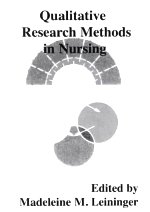
In 1998, she was honored as a Living Legend by the American Academy of Nursing and Distinguished Fellow, Royal College of Nursing in Australia.
The Leininger Transcultural Nursing Award was established in 1983 to recognize outstanding and creative leaders in transcultural nursing. This prestigious award will continue as the Leininger Transcultural Nursing Award under the Transcultural Nursing Society’s auspices in Madeleine Leininger’s honor.
Death
On August 10th, 2012, Leininger passed away at her home in Omaha, Nebraska. She was buried in Sutton’s Calvary Cemetery.
Leininger’s Transcultural Nursing Theory
The Transcultural Nursing Theory or Culture Care Theory by Madeleine Leininger involves knowing and understanding different cultures concerning nursing and health-illness caring practices, beliefs, and values to provide meaningful and efficacious nursing care services to people’s cultural values health-illness context.
It focuses on the fact that different cultures have different caring behaviors and different health and illness values, beliefs, and patterns of behaviors.
The cultural care worldview flows into knowledge about individuals, families, groups, communities, and institutions in diverse health care systems. This knowledge provides culturally specific meanings and expressions about care and health. The next focus is on the generic or folk system, professional care system(s), and nursing care. Information about these systems includes the characteristics and the specific care features of each. This information allows for the identification of similarities and differences or cultural care universality and cultural care diversity.
Next are nursing care decisions and actions which involve cultural care preservation/maintenance, cultural care accommodation/negotiation, and cultural care re-patterning or restructuring. It is here that nursing care is delivered.
Description
In 1995, Madeleine Leininger defined transcultural nursing as “a substantive area of study and practiced focused on comparative cultural care (caring) values, beliefs, and practices of individuals or groups of similar or different cultures to provide culture-specific and universal nursing care practices in promoting health or well-being or to help people to face unfavorable human conditions, illness, or death in culturally meaningful ways.”
The Transcultural Nursing Theory first appeared in Leininger’s Culture Care Diversity and Universality, published in 1991, but it was developed in the 1950s. The theory was further developed in her book Transcultural Nursing, which was published in 1995. In the third edition of Transcultural Nursing, published in 2002, the theory-based research and the Transcultural theory application are explained.
Major Concepts of the Transcultural Nursing Theory
The following are the major concepts and their definitions in Madeleine Leininger’s Transcultural Nursing Theory.
Transcultural Nursing
Transcultural nursing is defined as a learned subfield or branch of nursing that focuses upon the comparative study and analysis of cultures concerning nursing and health-illness caring practices, beliefs, and values to provide meaningful and efficacious nursing care services to their cultural values and health-illness context.
Ethnonursing
This is the study of nursing care beliefs, values, and practices as cognitively perceived and known by a designated culture through their direct experience, beliefs, and value system (Leininger, 1979).
Nursing
Nursing is defined as a learned humanistic and scientific profession and discipline which is focused on human care phenomena and activities to assist, support, facilitate, or enable individuals or groups to maintain or regain their well-being (or health) in culturally meaningful and beneficial ways, or to help people face handicaps or death.
Professional Nursing Care (Caring)
Professional nursing care (caring) is defined as formal and cognitively learned professional care knowledge and practice skills obtained through educational institutions that are used to provide assistive, supportive, enabling, or facilitative acts to or for another individual or group to improve a human health condition (or well-being), disability, lifeway, or to work with dying clients.
Cultural Congruent (Nursing) Care
Cultural congruent (nursing) care is defined as those cognitively based assistive, supportive, facilitative, or enabling acts or decisions that are tailor-made to fit with the individual, group, or institutional, cultural values, beliefs, and lifeways to provide or support meaningful, beneficial, and satisfying health care, or well-being services.
Health
It is a state of well-being that is culturally defined, valued, and practiced. It reflects individuals’ (or groups) ‘ ability to perform their daily role activities in culturally expressed, beneficial, and patterned lifeways.
Human Beings
Such are believed to be caring and capable of being concerned about others’ needs, well-being, and survival. Leininger also indicates that nursing as a caring science should focus beyond traditional nurse-patient interactions and dyads to include families, groups, communities, total cultures, and institutions.
Society and Environment
Leininger did not define these terms; she speaks instead of worldview, social structure, and environmental context.
Worldview
Worldview is how people look at the world, or the universe, and form a “picture or value stance” about the world and their lives.
Cultural and Social Structure Dimensions
Cultural and social structure dimensions are defined as involving the dynamic patterns and features of interrelated structural and organizational factors of a particular culture (subculture or society) which includes religious, kinship (social), political (and legal), economic, educational, technological, and cultural values, ethnohistorical factors, and how these factors may be interrelated and function to influence human behavior in different environmental contexts.
Environmental Context
Environmental context is the totality of an event, situation, or particular experience that gives meaning to human expressions, interpretations, and social interactions in particular physical, ecological, sociopolitical, and/or cultural settings.
Culture
Culture is learned, shared, and transmitted values, beliefs, norms, and lifeways of a particular group that guides their thinking, decisions, and actions in patterned ways.
Culture Care
Culture care is defined as the subjectively and objectively learned and transmitted values, beliefs, and patterned lifeways that assist, support, facilitate, or enable another individual or group to maintain their well-being, health, improve their human condition lifeway, or deal with illness, handicaps or death.
Culture Care Diversity
Culture care diversity indicates the variabilities and/or differences in meanings, patterns, values, lifeways, or symbols of care within or between collectives related to assistive, supportive, or enabling human care expressions.
Culture Care Universality
Culture care universality indicates the common, similar, or dominant uniform care meanings, patterns, values, lifeways, or symbols manifest among many cultures and reflect assistive, supportive, facilitative, or enabling ways to help people. (Leininger, 1991)
Subconcepts
The following are the subconcepts of the Transcultural Nursing Theory of Madeleine Leininger and their definitions:
Generic (Folk or Lay) Care Systems
Generic (folk or lay) care systems are culturally learned and transmitted, indigenous (or traditional), folk (home-based) knowledge and skills used to provide assistive, supportive, enabling, or facilitative acts toward or for another individual, group, or institution with evident or anticipated needs to ameliorate or improve a human life way, health condition (or well-being), or to deal with handicaps and death situations.
Emic
Knowledge gained from direct experience or directly from those who have experienced it. It is generic or folk knowledge.
Professional Care Systems
Professional care systems are defined as formally taught, learned, and transmitted professional care, health, illness, wellness, and related knowledge and practice skills that prevail in professional institutions, usually with multidisciplinary personnel to serve consumers.
Etic
The knowledge that describes the professional perspective. It is professional care knowledge.
Ethnohistory
Ethnohistory includes those past facts, events, instances, experiences of individuals, groups, cultures, and instructions that are primarily people-centered (ethno) and describe, explain, and interpret human lifeways within particular cultural contexts over short or long periods of time.
Care
Care as a noun is defined as those abstract and concrete phenomena related to assisting, supporting, or enabling experiences or behaviors toward or for others with evident or anticipated needs to ameliorate or improve a human condition or lifeway.
Care
Care as a verb is defined as actions and activities directed toward assisting, supporting, or enabling another individual or group with evident or anticipated needs to ameliorate or improve a human condition or lifeway or face death.
Culture Shock
Culture shock may result when an outsider attempts to comprehend or adapt effectively to a different cultural group. The outsider is likely to experience feelings of discomfort and helplessness and some degree of disorientation because of the differences in cultural values, beliefs, and practices. Culture shock may lead to anger and can be reduced by seeking knowledge of the culture before encountering that culture.
Cultural Imposition
Cultural imposition refers to the outsider’s efforts, both subtle and not so subtle, to impose their own cultural values, beliefs, behaviors upon an individual, family, or group from another culture. (Leininger, 1978)
Sunrise Model of Madeleine Leininger’s Theory
The Sunrise Model is relevant because it enables nurses to develop critical and complex thoughts about nursing practice. These thoughts should consider and integrate cultural and social structure dimensions in each specific context, besides nursing care’s biological and psychological aspects.
The cultural care worldview flows into knowledge about individuals, families, groups, communities, and institutions in diverse health care systems. This knowledge provides culturally specific meanings and expressions concerning care and health. The next focus is on the generic or folk system, professional care systems, and nursing care. Information about these systems includes the characteristics and the specific care features of each. This information allows for the identification of similarities and differences or cultural care universality and cultural care diversity.
Next are nursing care decisions and actions which involve cultural care preservation or maintenance, cultural care accommodation or negotiation, and cultural care repatterning or restructuring. It is here that nursing care is delivered.
Three modes of nursing care decisions and actions
Cultural care preservation or Maintenance
Cultural care preservation is also known as maintenance. It includes those assistive, supporting, facilitative, or enabling professional actions and decisions that help people of a particular culture to retain and/or preserve relevant care values so that they can maintain their well-being, recover from illness, or face handicaps and/or death.
Cultural care accommodation or Negotiation
Cultural care accommodation, also known as negotiation, includes those assistive, supportive, facilitative, or enabling creative professional actions and decisions that help people of a designated culture to adapt to or negotiate with others for a beneficial or satisfying health outcome with professional care providers.
Culture care repatterning or Restructuring
Culture care repatterning or restructuring includes those assistive, supporting, facilitative, or enabling professional actions and decisions that help clients reorder, change, or greatly modify their lifeways for new, different, and beneficial health care pattern while respecting the clients’ cultural values and beliefs and still providing a beneficial or healthier lifeway than before the changes were established with the clients. (Leininger, 1991)
Assumptions
The following are the assumptions of Madeleine Leininger’s theory:
- Different cultures perceive, know, and practice care differently, yet there are some commonalities about care among all world cultures.
- Values, beliefs, and practices for culturally related care are shaped by, and often embedded in, “the worldview, language, religious (or spiritual), kinship (social), political (or legal), educational, economic, technological, ethnohistorical, and environmental context of the culture.
- While human care is universal across cultures, caring may be demonstrated through diverse expressions, actions, patterns, lifestyles, and meanings.
- Cultural care is the broadest holistic means to know, explain, interpret, and predict nursing care phenomena to guide nursing care practices.
- All cultures have generic or folk health care practices, that professional practices vary across cultures, and that there will be cultural similarities and differences between the care-receivers (generic) and the professional caregivers in any culture.
- Care is the distinct, dominant, unifying, and central focus of nursing, and while curing and healing cannot occur effectively without care, care may occur without a cure.
- Care and caring are essential for humans’ survival and their growth, health, well-being, healing, and ability to deal with handicaps and death.
- Nursing, as a transcultural care discipline and profession, has a central purpose of serving human beings in all areas of the world; that when culturally based nursing care is beneficial and healthy, it contributes to the well-being of the client(s) – whether individuals, groups, families, communities, or institutions – as they function within the context of their environments.
- Nursing care will be culturally congruent or beneficial only when the nurse knows the clients. The clients’ patterns, expressions, and cultural values are used in appropriate and meaningful ways by the nurse with the clients.
- If clients receive nursing care that is not at least reasonably culturally congruent (that is, compatible with and respectful of the clients’ lifeways, beliefs, and values), the client will demonstrate signs of stress, noncompliance, cultural conflicts, and/or ethical or moral concerns.
Analysis
In Leininger’s nursing theory, it was stated that the nurse would help the client move towards amelioration or improvement of their health practice or condition. This statement would be of great difficulty for the nurse because instilling new ideas in a different culture might present an intrusive intent for the “insiders.” Culture is a strong set of practices developed over generations that would make it difficult to penetrate.
The whole activity of immersing yourself within a different culture is time-consuming to understand their beliefs and practices fully. Another is that it would be costly on the part of the nurse.
Because of its financial constraints and unclear ways of being financially compensated, it can be the reason why nurses do not engage much with this kind of nursing approach.
Because of the intrusive nature, resistance from the “insiders” might impose a risk to the nurse’s safety, especially for cultures with highly taboo practices.
It is highly commendable that Leininger formulated a theory that is specified to a multicultural aspect of care. On the other side, too much was given to the culture concept per se that Leininger failed to discuss the functions or roles of nurses comprehensively. It was not stated how to assist, support or enable the client to attuning them to an improved lifeway.
Strengths
- Leininger has developed the Sunrise Model in a logical order to demonstrate the interrelationships of the concepts in her theory of Culture Care Diversity and Universality.
- Leininger’s theory is essentially parsimonious in that the necessary concepts are incorporated in such a manner that the theory and its model can be applied in many different settings.
- It is highly generalizable. The concepts and relationships presented are at a level of abstraction, which allows them to be applied in many different situations.
- Though not simple in terms, it can be easily understood upon the first contact.
Weakness
- The theory and model are not simple in terms.
Conclusion
According to transcultural nursing, nursing care aims to provide care congruent with cultural values, beliefs, and practices.
Cultural knowledge plays a vital role for nurses on how to deal with the patients. To start, it helps nurses to be aware of how the patient’s culture and faith system provide resources for their experiences with illness, suffering, and even death. It helps nurses understand and respect the diversity that is often present in a nurse’s patient load. It also helps strengthen a nurse’s commitment to nursing based on nurse-patient relationships and emphasizing the whole person rather than viewing the patient as simply a set of symptoms or illness. Finally, using cultural knowledge to treat a patient also helps a nurse be open-minded to treatments that can be considered non-traditional, such as spiritually based therapies like meditation and anointing.
Nowadays, nurses must be sensitive to their patients’ cultural backgrounds when creating a nursing plan. This is especially important since so many people’s culture is so integral in who they are as individuals, and it is that culture that can greatly affect their health and their reactions to treatments and care. With these, awareness of the differences allows the nurse to design culture-specific nursing interventions.
Through Leininger’s theory, nurses can observe how a patient’s cultural background is related to their health and use that knowledge to create a nursing plan that will help the patient get healthy quickly while still being sensitive to his or her cultural background.
Recommended Resources
Recommended books and resources to learn more about nursing theory:
Disclosure: Included below are affiliate links from Amazon at no additional cost from you. We may earn a small commission from your purchase. For more information, check out our privacy policy.
- Nursing Theorists and Their Work (10th Edition) by Alligood
Nursing Theorists and Their Work, 10th Edition provides a clear, in-depth look at nursing theories of historical and international significance. Each chapter presents a key nursing theory or philosophy, showing how systematic theoretical evidence can enhance decision making, professionalism, and quality of care. - Knowledge Development in Nursing: Theory and Process (11th Edition)
Use the five patterns of knowing to help you develop sound clinical judgment. This edition reflects the latest thinking in nursing knowledge development and adds emphasis to real-world application. The content in this edition aligns with the new 2021 AACN Essentials for Nursing Education. - Nursing Knowledge and Theory Innovation, Second Edition: Advancing the Science of Practice (2nd Edition)
This text for graduate-level nursing students focuses on the science and philosophy of nursing knowledge development. It is distinguished by its focus on practical applications of theory for scholarly, evidence-based approaches. The second edition features important updates and a reorganization of information to better highlight the roles of theory and major philosophical perspectives. - Nursing Theories and Nursing Practice (5th Edition)
The only nursing research and theory book with primary works by the original theorists. Explore the historical and contemporary theories that are the foundation of nursing practice today. The 5th Edition, continues to meet the needs of today’s students with an expanded focus on the middle range theories and practice models. - Strategies for Theory Construction in Nursing (6th Edition)
The clearest, most useful introduction to theory development methods. Reflecting vast changes in nursing practice, it covers advances both in theory development and in strategies for concept, statement, and theory development. It also builds further connections between nursing theory and evidence-based practice. - Middle Range Theory for Nursing (4th Edition)
This nursing book’s ability to break down complex ideas is part of what made this book a three-time recipient of the AJN Book of the Year award. This edition includes five completely new chapters of content essential for nursing books. New exemplars linking middle range theory to advanced nursing practice make it even more useful and expand the content to make it better. - Nursing Research: Methods and Critical Appraisal for Evidence-Based Practice
This book offers balanced coverage of both qualitative and quantitative research methodologies. This edition features new content on trending topics, including the Next-Generation NCLEX® Exam (NGN). - Nursing Research (11th Edition)
AJN award-winning authors Denise Polit and Cheryl Beck detail the latest methodologic innovations in nursing, medicine, and the social sciences. The updated 11th Edition adds two new chapters designed to help students ensure the accuracy and effectiveness of research methods. Extensively revised content throughout strengthens students’ ability to locate and rank clinical evidence.
See Also
Recommended site resources related to nursing theory:
- Nursing Theories and Theorists: The Definitive Guide for Nurses MUST READ!
In this guide for nursing theories, we aim to help you understand what comprises a nursing theory and its importance, purpose, history, types or classifications, and give you an overview through summaries of selected nursing theories.
Other resources related to nursing theory:
- Betty Neuman: Neuman Systems Model
- Dorothea Orem: Self-Care Deficit Theory
- Dorothy Johnson: Behavioral System Model
- Faye Abdellah: 21 Nursing Problems Theory
- Florence Nightingale: Environmental Theory
- Hildegard Peplau: Interpersonal Relations Theory
- Ida Jean Orlando: Deliberative Nursing Process Theory
- Imogene King: Theory of Goal Attainment
- Jean Watson: Theory of Human Caring
- Lydia Hall: Care, Cure, Core Nursing Theory
- Madeleine Leininger: Transcultural Nursing Theory
- Martha Rogers: Science of Unitary Human Beings
- Myra Estrin Levine: The Conservation Model of Nursing
- Nola Pender: Health Promotion Model
- Sister Callista Roy: Adaptation Model of Nursing
- Virginia Henderson: Nursing Need Theory
References and Sources
- Transcultural Nursing Society. (n.d.). Transcultural Nursing Society. Retrieved August 1, 2014, from https://www.tcns.org/
- Tributes to Dr. Madeleine Leininger. (n.d.). Tributes to Dr. Madeleine Leininger. Retrieved August 1, 2014, from https://www.madeleine-leininger.com/
- Leininger, M. (1978). Transcultural nursing: Concepts, theories, and practices. In George, J. (Ed.). Nursing theories: the base for professional nursing practice. Norwalk, Connecticut: Appleton & Lange.
- Leininger, M. (1979). Transcultural nursing. In George, J. (Ed.). Nursing theories: the base for professional nursing practice. Norwalk, Connecticut: Appleton & Lange.
- Leininger, M. M. (1991). Culture care diversity and universality: A theory of nursing. In George, J. (Ed.). Nursing theories: the base for professional nursing practice. Norwalk, Connecticut: Appleton & Lange.
External Links
- Transcultural Nursing: Concepts, Theories, Research and Practice
- Culture Care Diversity & Universality: A Worldwide Nursing Theory
Further Reading
With contributions by Wayne, G., Vera, M.
Originally published on August 24, 2014.
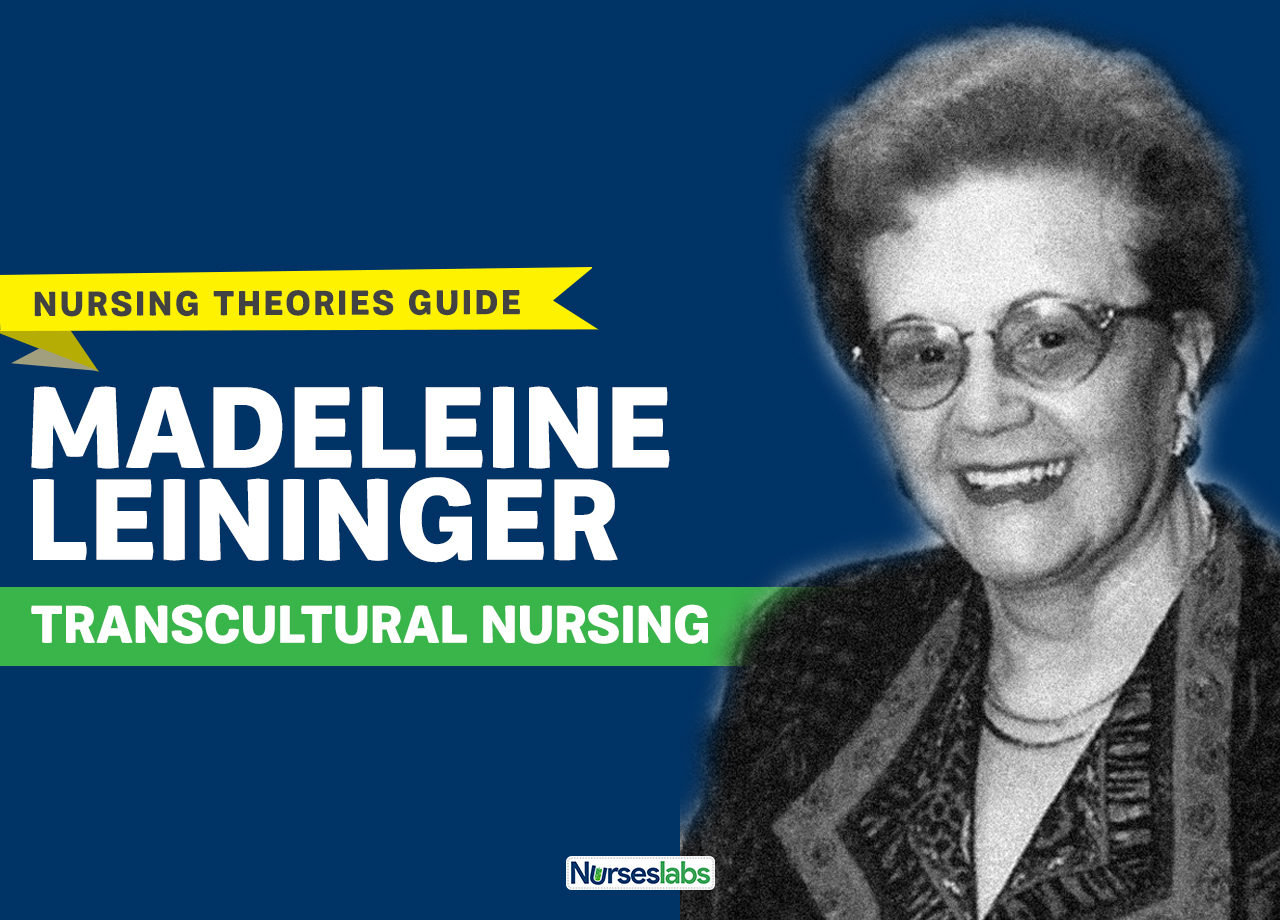
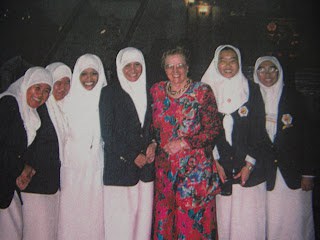
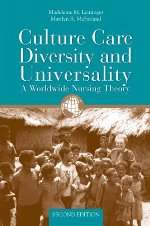
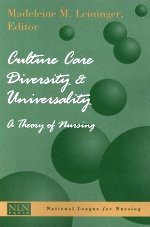
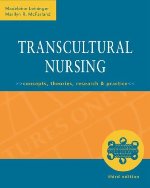
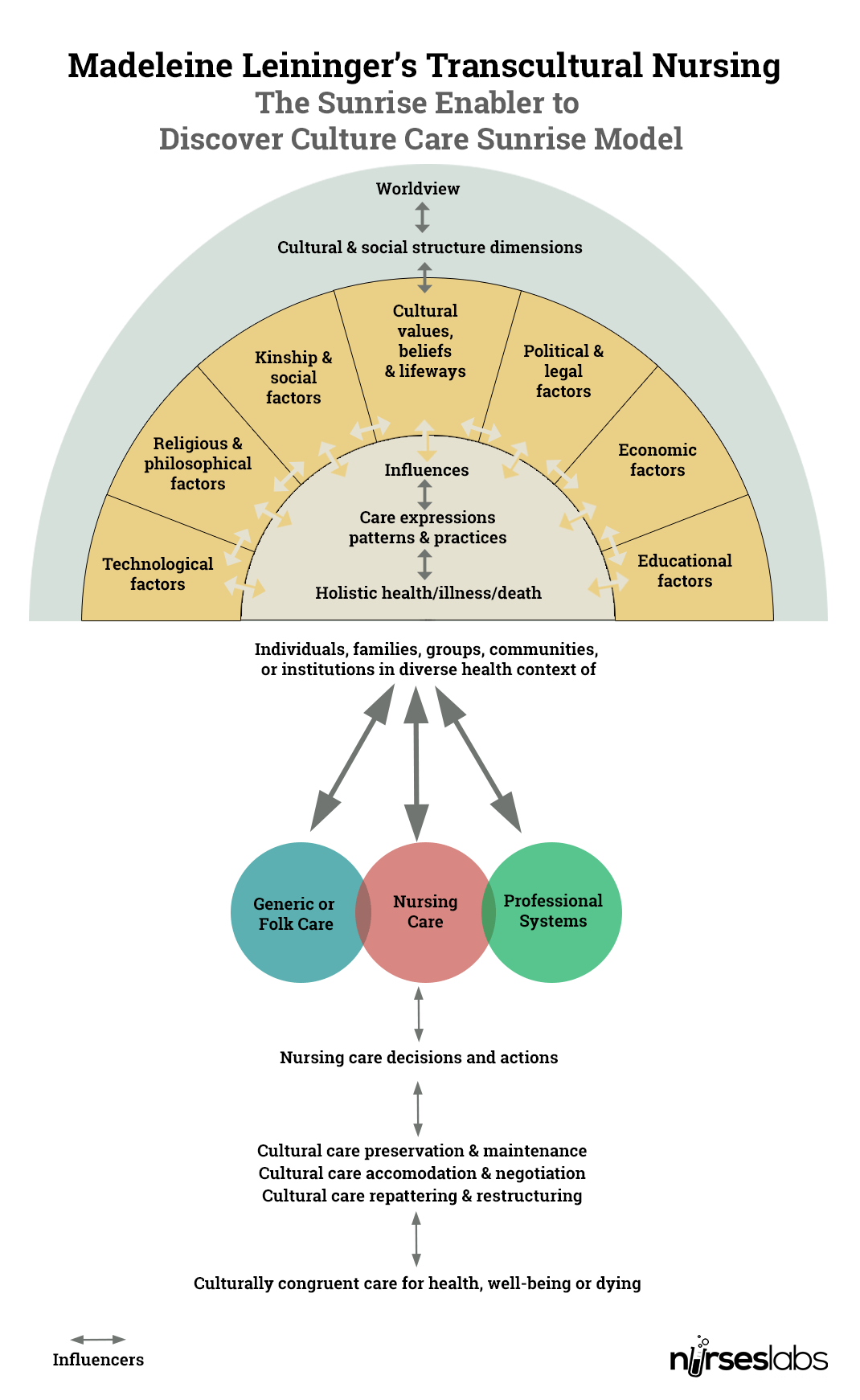
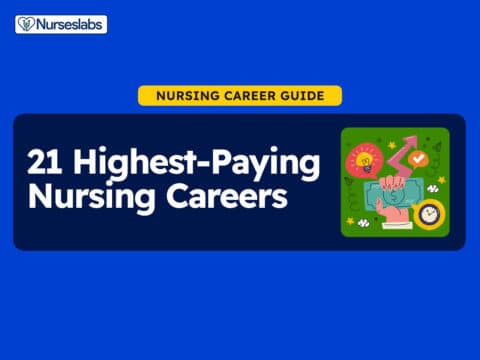
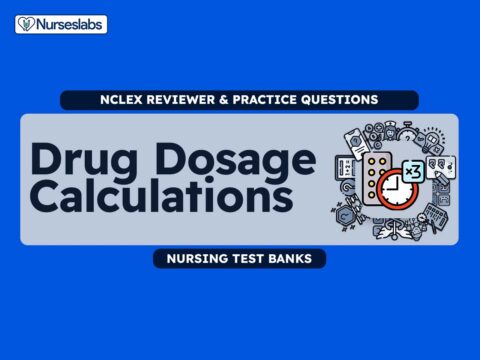
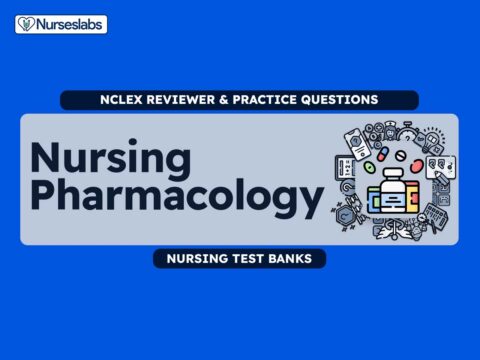
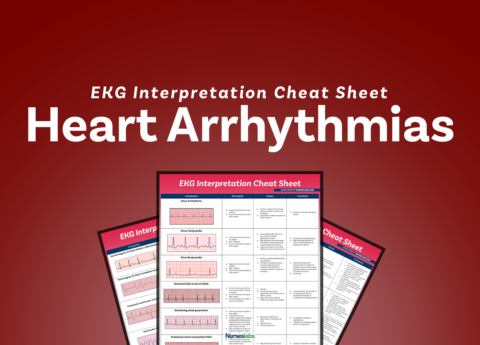
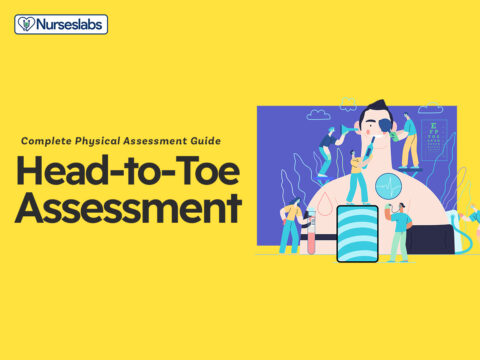
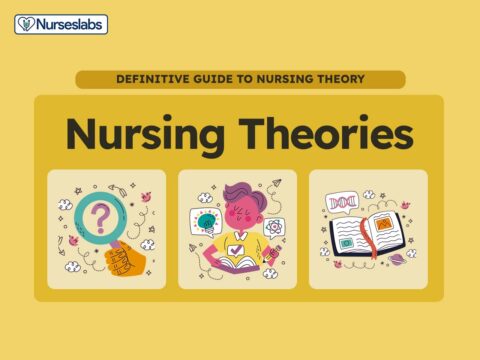

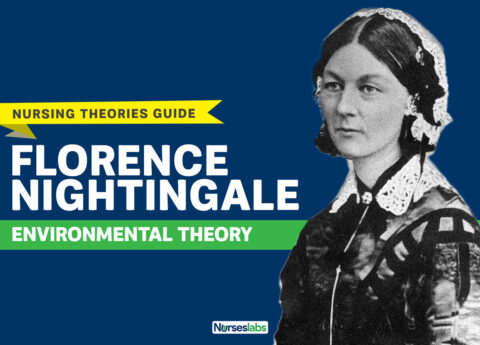

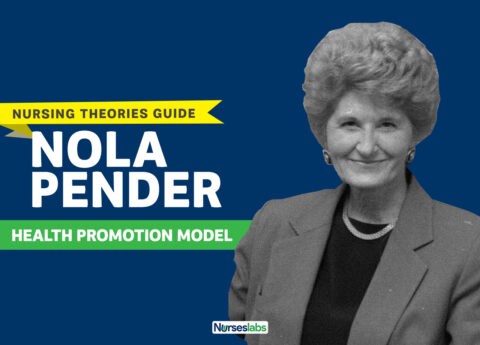

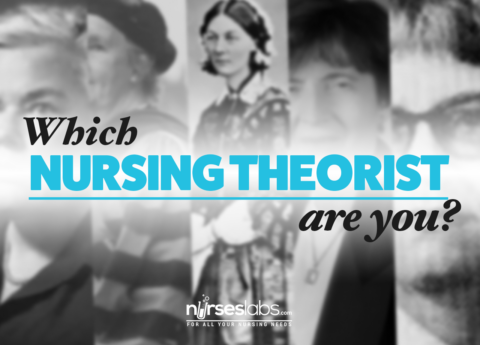
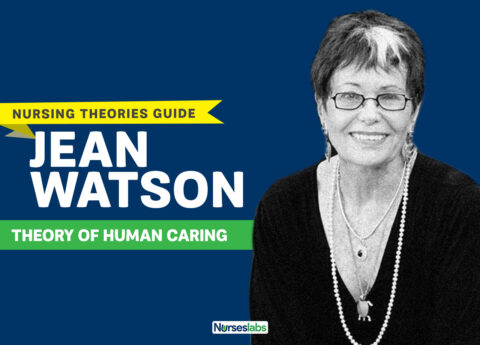


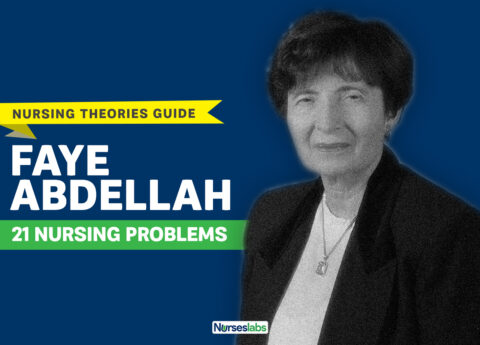
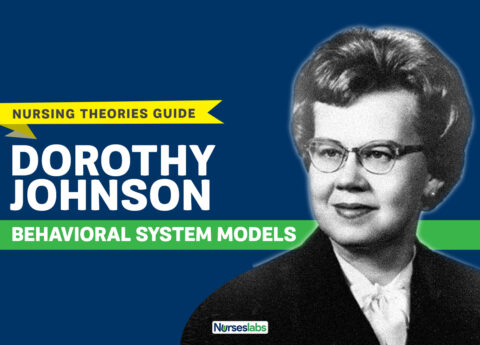
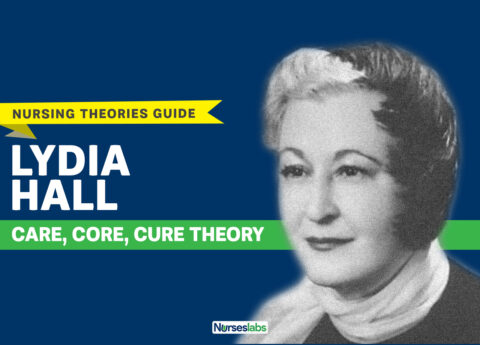

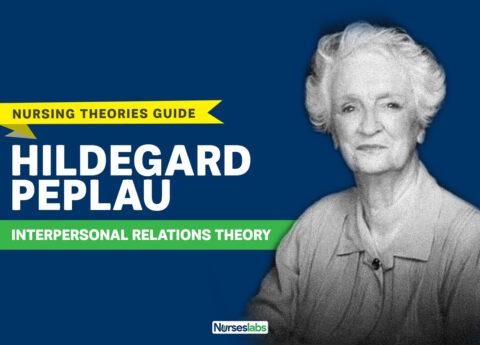
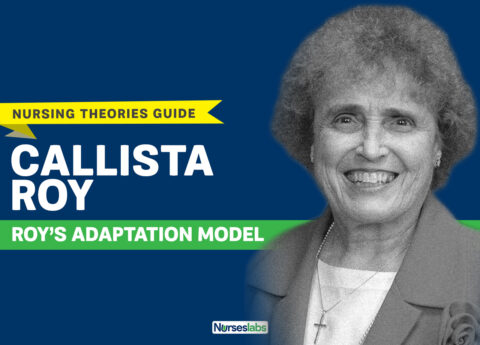
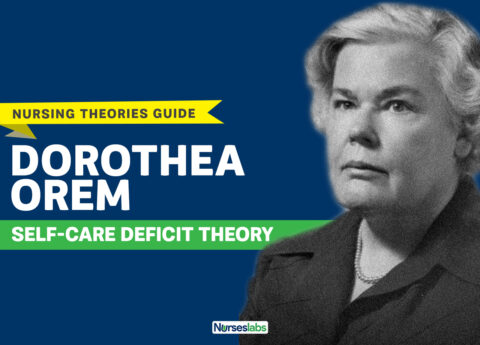
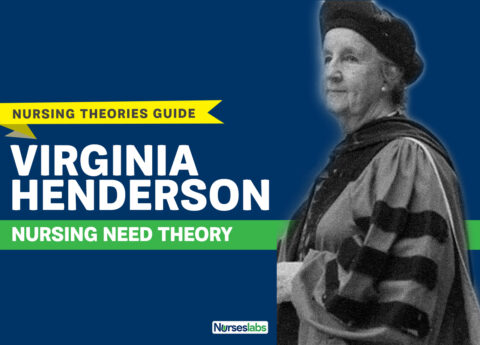
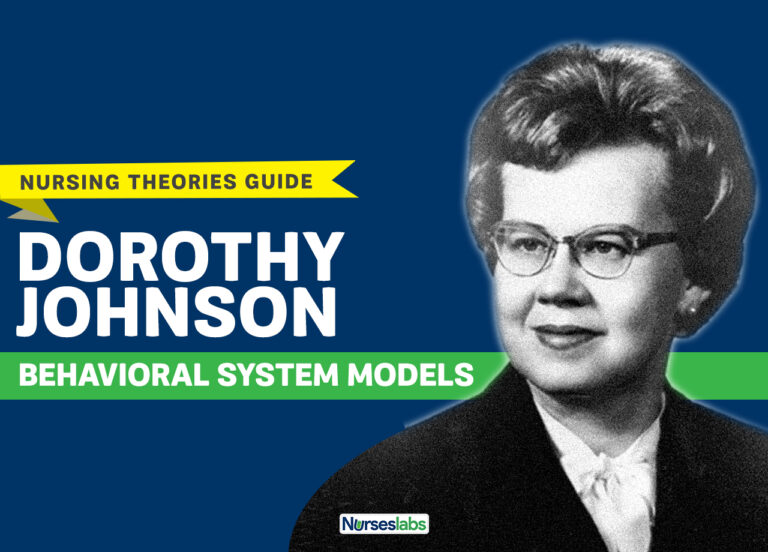
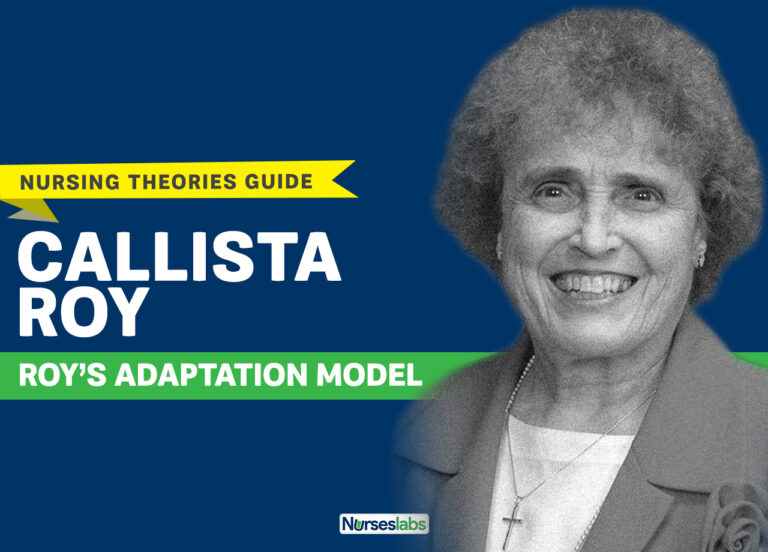



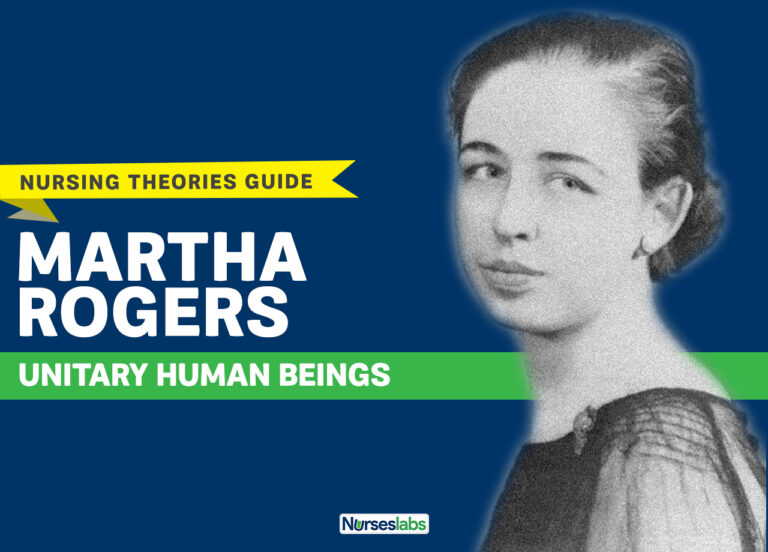
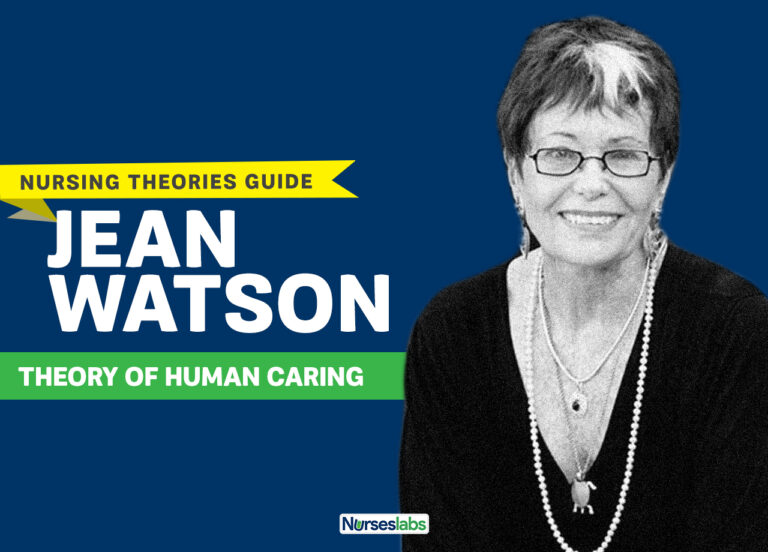
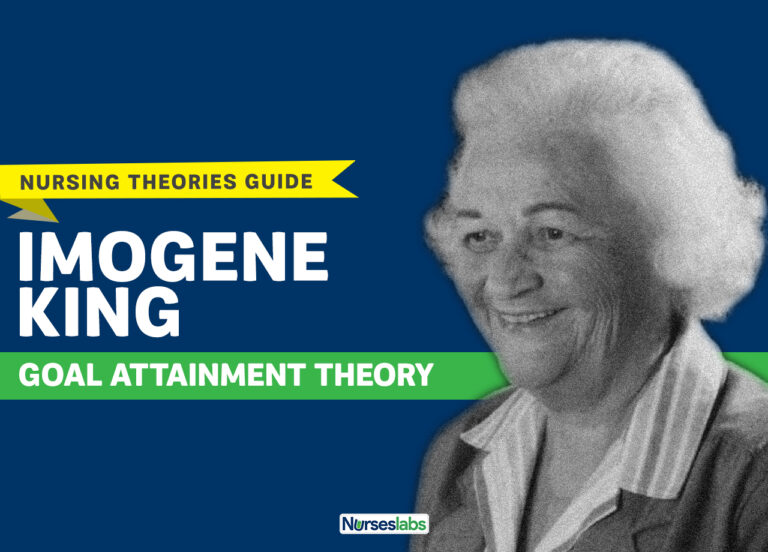
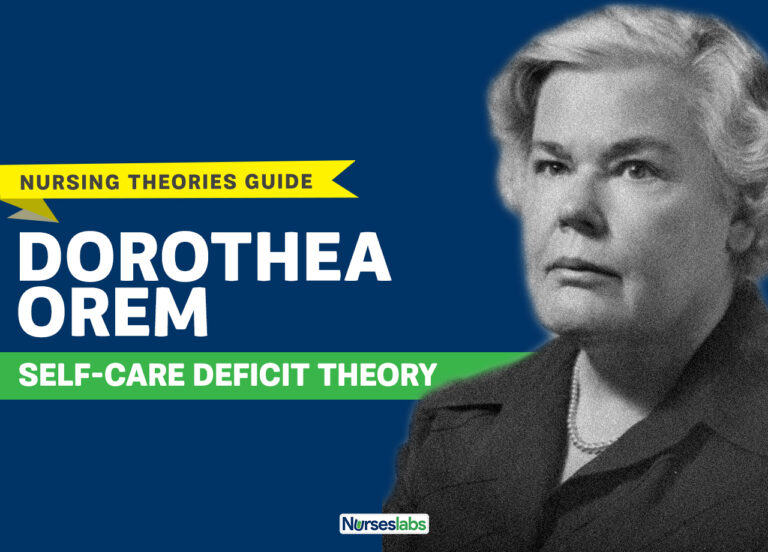

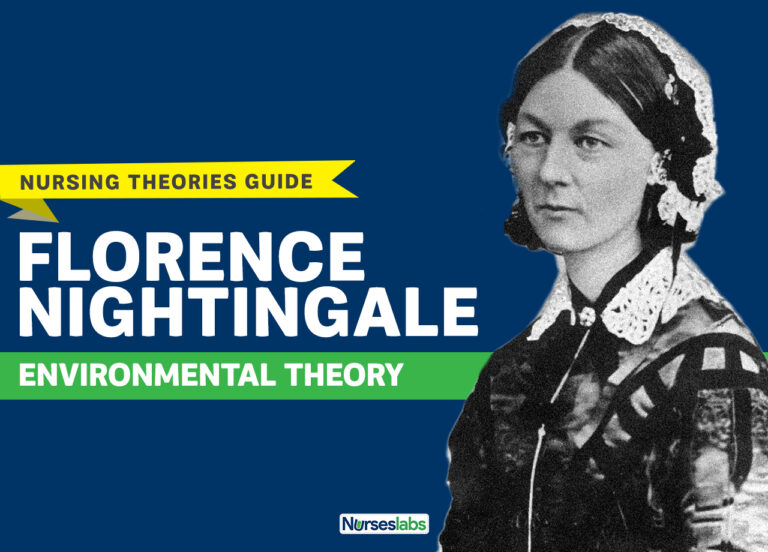
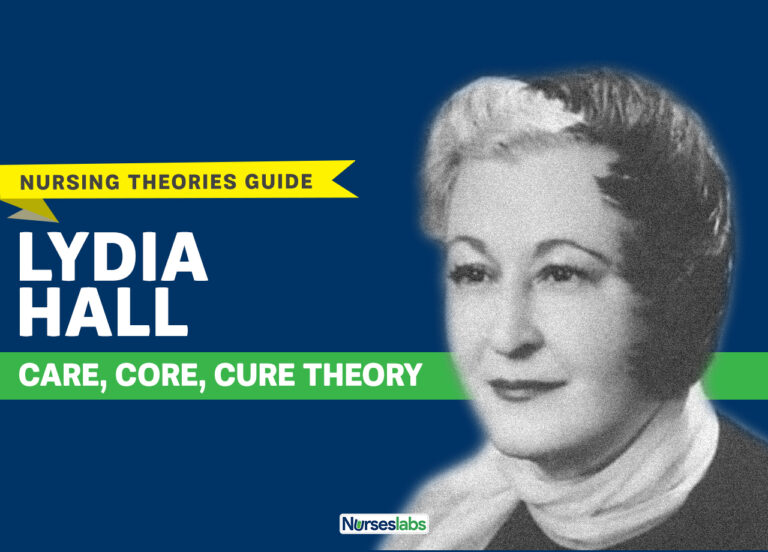
Leave a Comment